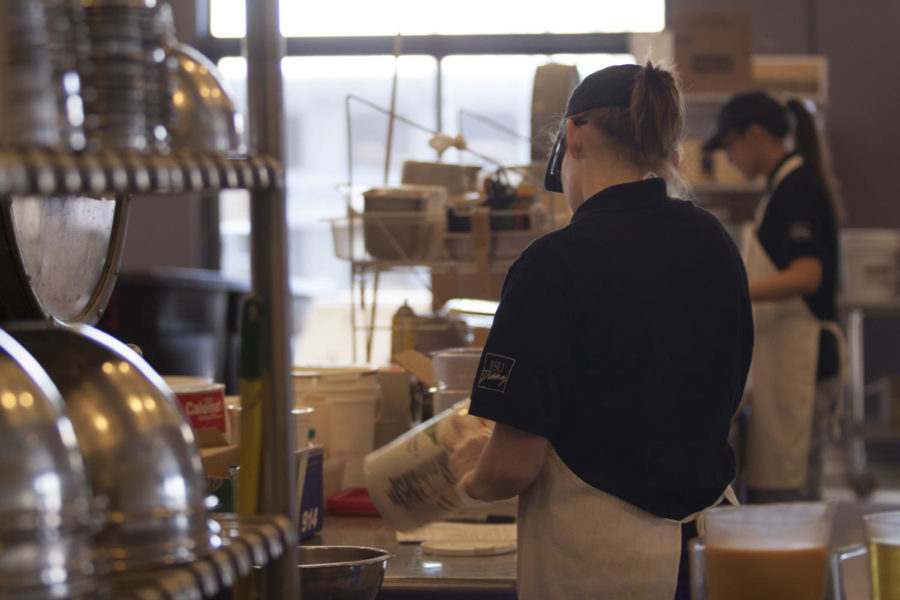Commissary, bakery teams work to feed thousands daily
March 19, 2013
Students do not usually consider where the food on campus comes from. Most of the baked, prepackaged food is made here from a super-sized kitchen in the Storms Dining Center.
“In the 15 years I have worked here [in this building], not many people know we exist; we’re like a little hideaway on campus that no one knows about, but we have a very big role in supporting ISU Dining,” said Rae Ann Kolbet, manager of the commissary kitchen.
The kitchen is shared between the bakery and the commissary. The bakery is in charge of baked goods such as breads, brownies and cookies.
“Cookies are always a big thing for us, probably the biggest thing we do. We probably do between 2,000 and 3,000 a day,” said Mark Weber, bakery manager. “Also buttermilk brownies; oh that’s a good one, probably on a busy week make them two or three times a week. When we make those, our recipe between 200 and 300 pounds for a batch.“
Weber explained the high cost of ingredients in the fall for the bakery.
“The costs [for ingredients] for the bakery are $284,440, that’s higher than the spring would be because we also support the football team and produce the items over there,” Weber said.
The bakery is run by both students and full time staff who work around the clock, some beginning as early as 4 a.m.
“I have 33 students that I hire that work seven days a week, and two student managers. I have 11 full-time staff, that work either nights or days, and one kitchen helper,” Weber said.
The commissary is where deli-style foods are made. The vending machine sandwiches seen on campus come from here.
“I have three supervisors, two student supervisors, and then I have nine merit staff and then 20 students,” Kolbet said
A large staff is needed to direct the large amount of product that needs to feed thousands of students.
“Buffalo chicken wraps end up being one of our top 10 products for us, which is like anywhere from 250 to 275 when we have them on the menu,” Kolbet said.
The commissary experiences the same problems and timeline constraints that are seen on reality TV shows on the food network.
“We were going to have a parfait for instance, and sometimes we will switch it with another item because we had bad weather and the AE truck couldn’t get here with the yogurt we needed for that day so we decide to switch up the menu a little bit,” Kolbet said.
Kolbet said there is never a dull moment in ISU food distribution.
“I mean really, no two days are alike, I know that some people have jobs like that, but I’ve very seldom been bored in my 15 years, there’s always a problem to be solved,” Kolbet said.







